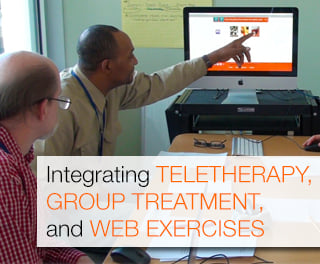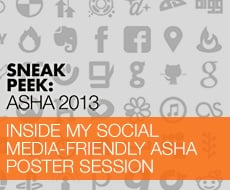For many years it was widely believed post-stroke survivors with aphasia would essentially plateau six months into their recovery. In an effort to test this assumption and support the community of adults with chronic aphasia, we studied the effectiveness of our speech-generating devices in the recovery and improvement of speech for adults with aphasia long after onset. Our research proved that adults can improve significantly beyond six months with the help of a speech device.
November 12, 2013
| by Lisa Haynes, MS, CCC-SLP
A patient diagnosed with aphasia often faces several speech-language pathologists, multiple facilities, and various insurance plans with separate therapy requirements. These requirements can be as varied as the disciplines they encounter along their care continuum, which can span many years and adhere to multiple plans-of-care. Herein lies today’s challenge for SLPs that work with people with aphasia: How do we maximize the therapeutic benefit for our patients when managing a complex population that requires the involvement of multiple clinicians in an ever-changing healthcare system?







